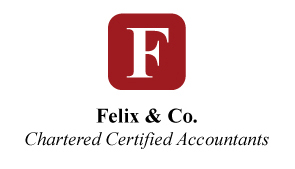Managing property Accountant finances in the UK is not always simple. Tax rules are complex. Regulations keep changing. Without expert help, landlords and property investors can lose money, miss tax-saving opportunities, or fall behind on compliance.
What Does a Property Accountant Do?
A property accountant helps landlords, investors, and real estate firms manage taxes and finances. Their job goes far beyond filing tax returns. They provide advice on tax planning, cash flow, and investment strategy.

Here are a few things a property accountant handles:
-
Rental income tax and deductible expenses
-
Capital Gains Tax (CGT) on property sales
-
Stamp Duty Land Tax (SDLT) calculations
-
VAT on commercial property deals
-
Structuring investments using companies or SPVs
-
Preparing annual accounts and financial reports
-
Filing self-assessment or corporation tax returns
-
Helping clients stay compliant with HMRC rules
Why Is a Property Accountant Important?
1. They Help You Save Money on Tax
UK property tax is full of legal ways to reduce your bill—if you know where to look. A property accountant can help you claim all allowable expenses, choose the best ownership structure, and time your sales to reduce CGT.
2. They Keep You Compliant with HMRC
Missing deadlines or submitting wrong tax returns can lead to penalties. A specialist ensures you follow HMRC rules, submit the right forms, and stay up to date with regulation changes.
3. They Support Your Growth
Thinking of expanding your portfolio? A property accountant helps you plan with confidence. They guide you on investment strategy, cash flow, and company structure.

What to Look For in an accountant
Choosing the right accountant makes a big difference. Here’s what to check:
✅ Experience with Property Clients
Look for someone who understands buy-to-let tax, SPVs, non-resident landlord rules, and VAT.
✅ Professional Qualifications
Your accountant should be certified by bodies like ACCA, ICAEW, CIOT, or AAT. These show their knowledge and ethical standards.
✅ Good Use of Technology
Top firms use tools like Xero, QuickBooks, or Landlord Vision. These tools make bookkeeping, reporting, and tax filing much easier.
✅ Clear Communication
Avoid jargon. A good accountant explains things in simple terms and gives advice you can use.
Why Choose Felixaccountants?
At Felixaccountant, we focus 100% on the property sector. Our team helps landlords, investors, and property businesses across the UK manage their finances, reduce tax, and stay HMRC compliant.
Here’s what makes us different:
-
✅ Specialist in Property Tax: We know CGT, SDLT, VAT, and rental income rules inside out.
-
✅ Tailored Advice: Whether you own one flat or fifty, we build a plan around you.
-
✅ Transparent Pricing: No hidden fees. You’ll always know what you’re paying for.
-
✅ Proven Trust: Our clients trust us. Just check our Google and Trustpilot reviews.
-
✅ Modern Tools: We use top accounting software to keep things smooth and accurate.
-
✅ Strategic Thinking: We go beyond taxes. We help you grow your property wealth.

Property Accountant
A Felixaccountants is not just a tax filer. They are a long-term partner in your property journey. They help you save money, avoid penalties, and build a more profitable portfolio.
Whether you’re just starting or growing fast, having the right expert on your side can make all the difference.
Contact Felixaccountant today for a free consultation.
FAQs: Choosing the Right Property Accountant in the UK
1. What does a property accountant do?
A property accountant helps landlords, investors, and real estate businesses manage taxes, finances, and compliance. They handle rental income tax, Capital Gains Tax, VAT on properties, investment structuring, and HMRC filings.
2. Why should I hire a property accountant instead of a general accountant?
Property tax rules are complex and constantly changing. A property accountant has specialist knowledge in areas like buy-to-let taxation, SPVs, VAT, and Capital Allowances—ensuring better tax savings and full HMRC compliance.
3. Do I need a property accountant if I own just one rental property?
Yes. Even first-time or single-property landlords can benefit from expert advice on allowable expenses, mortgage relief, and structuring. It helps avoid penalties and boosts profitability.
4. Can a property accountant help with Capital Gains Tax (CGT)?
Absolutely. A property accountant can advise on when and how to sell properties, claim reliefs, and reduce CGT liabilities using legal strategies tailored to your situation.
5. What is the best structure for property investment—personal or company?
This depends on your goals. A property accountant will assess whether personal ownership, a limited company, or a Special Purpose Vehicle (SPV) provides better tax efficiency and liability protection.
6. How can a property accountant help with VAT on commercial properties?
They guide you on when to opt to tax, how to reclaim VAT on purchases or construction, and how to manage VAT on leases and sales. This can prevent costly mistakes and maximise recovery.
7. What software do property accountants use?
At UK Property Accountant, we use cloud-based software like Xero, QuickBooks, and Landlord Vision to streamline your finances, automate reporting, and maintain real-time compliance.
8. What qualifications should I look for in a property accountant?
Look for certifications like ACCA, ICAEW, CIOT, or AAT. These ensure the accountant is trained, experienced, and held to professional standards.
9. Do you help non-resident landlords?
Yes. We assist overseas property owners in meeting their UK tax obligations, managing rental income, and staying compliant with the Non-Resident Landlord Scheme.
click here for more

